
GRANT
and
TWAIN
THE STORY OF A FRIENDSHIP
THAT CHANGED AMERICA
MARK PERRY
RANDOM HOUSE  NEW YORK
NEW YORK
CONTENTS

NOTES

PROLOGUE: HE FIGHTS
Girth did not come with fame: Grant: A Biography, William S. McFeeley, Norton, New York, 1981, p. 13. See also Personal Memoirs of Ulysses S. Grant, Ulysses S. Grant, Modern Library, New York, pp. 1516.
The tanners son had a hard-nosed quality: Ibid., p. 17. See also Ulysses S. Grant: Triumph over Adversity, Brooks D. Simpson, Houghton Mifflin, Boston, 2000, pp. 3132 (hereafter Simpson).
He fights: Abraham Lincoln and Men of War-Times, Alexander K. McClure, Times Publishing, Philadelphia, 1892, p. 111. See also Grant, Jean Edward Smith, Simon & Schuster, New York, 2001, p. 178 (hereafter Smith).
He looks as if he meant it, the private said: The Civil War: A Narrative, vol. 3, Shelby Foote, Random House, New York, 1974, p. 148.
He habitually wears an expression: Ibid., p. 6.
We must make up our minds to get into line of battle: Ibid., p. 123.
Ulysses dont scare worth a damn: Patriotic Gore, Edmund Wilson, W. W. Norton & Co., New York, 1962, p. 134.
Ulysses S. Grants financial partner Ferdinand Ward: Grant: A Biography, p. 149. See also Many Are the Hearts: The Agony and Triumph of Ulysses S. Grant, Richard Goldhurst, Readers Digest Press, New York, 1975, pp. 59, and The Captain Departs: Ulysses S. Grants Last Campaign, Thomas M. Pitkin, Southern Illinois University Press, Carbondale, 1973, pp. 1013.
While less dashing than the evanescent Ward: Grant: A Biography, p. 460.
Theres millions in it: The Gilded Age, Mark Twain, Modern Library, New York, 2002, p. 88.
Some men worship rank, Twain had once written: Mark Twains Notebooks and Journals, vol. 1, Frederick Anderson, Michael B. Frank, and Kenneth M. Saunderson, eds., University of California Press, Berkeley, 1975, p. 334. See also The Quotable Mark Twain: His Essential Aphorisms, Witticisms and Concise Opinions, Kent Rasmussen, ed., Contemporary Books, New York, 1998, p. 184.
Buck borrowed $100,000 from his father-in-law: Many Are the Hearts, p. 9.
Within three years, Grants initial investments were worth $750,000: Ibid., p. 4.
Ward arrived at the Grant home at midmorning on May 4: The Captain Departs, p. 4.
That afternoon, Grant visited the home of an old friend: Many Are the Hearts, p. 3.
I care nothing for the Marine Bank, General Grant: Ibid., p. 4. See also Grant: A Biography, pp. 492, 508. Vanderbilt was privately critical of Grant for not being more careful with his moneyand attributed the habit to Grants having too much of it too soon. He said that while there was much sympathy for Grant, there was also much fault-finding.
He told Buck that they should pay a visit to Mr. Ward: Many Are the Hearts, pp. 56.
Well wait, Elkins said: Ibid., p. 6. The specific events of the Grant-Ward confrontation were given by Buck to The New York Times (in an article dated July 8, 1884) and the New York Tribune (in an article dated May 8, 1884). From May 8 to May 13, The New York Times and the New York Tribune printed no fewer than one dozen articles on the bankruptcy of Grant & Ward.
The whole thing is suspicious, he said: Ibid., p. 6.
An angry crowd gathered at the bank: Ibid., p. 7.
The Marine Bank closed this morning: Grant & Ward Bankrupt, The New York Times, May 10, 1884, p. 1.
It was to be a grand event, national in scope: The Autobiography of Mark Twain, Mark Twain (Charles Neider, ed.), Harper & Row, New York, 1959, p. 234.
He has taught me to abhor and detest the Sabbath-day: Mr. Clemens and Mark Twain: A Biography, Justin Kaplan, Simon & Schuster, New York, 1966, p. 266. See also Introduction to The Annotated Huckleberry Finn, Michael Patrick Hearn, W. W. Norton & Co., New York, 2001, p. liii.
he was a Grant-intoxicated man: Ibid., pp. 22324.
My father and I, Clemens wrote, were always on the most distant terms: The Autobiography of Mark Twain, p. 28.
I shook hands and then there was a pause and silence: Ibid., p. 317.
As Grant sat, impassively, listening: Ibid., pp. 31720.
I fetched him up, he wrote to his wife: Letter to Olivia Langdon Clemens, in the Mark Twain Papers, vol. 3, University of California Library, Berkeley, p. 222 (hereafter Mark Twain Papers). See also Mark Twains Letters, vol. 2, Albert Bigelow Paine, Harper & Brothers, New York, 1917, pp. 37073.
Howells was suitably grateful, but Grant was modest: Many Are the Hearts, pp. 12627.
I argued that the book would have an enormous sale, he recounted: The Autobiography of Mark Twain, p. 310.
IS GRANT GUILTY?: Is Grant Guilty? New York Post, May 5, 1884, p. 1.
Now that I am at liberty to treat these things as my own: Many Are the Hearts, p. 24. See also The Last Days of General Grant, Adam Badeau, Century magazine 30 (October 1885), p. 153.
In the midst of his financial crisis, Charles Wood: Many Are the Hearts, pp. 2122.
An old friend closer to Grant, Mexican ambassador Mathias Romero: Ibid., p. 22.
CHAPTER ONE: A MAN WITH FIRE
That was not true of his father, Jesse: Grant: A Biography, pp. 58.
Hannah Simpson was a strong-willed Pennsylvania woman: Ibid., p. 7.
The house was sparsely furnished, as Hannah insisted: Ibid., p. 10.
But Jesse was not well liked: Smith, p. 22.
Jesse Grant was proud of his son Ulysses and showed him off: Ibid, p. 23.
Throughout his life, Grant had an affinity for horses: Ibid.
When his mother was warned that her three-year-old son: Many Are the Hearts, p. 31. There were persistent reports among some of Grants colleagues that his mother was simple-minded, a rumor mentioned in McFeeleys seminal biography of the general. But he, and other biographers, have since noted that Hannah Grant prized educationpushing her own husband to read more frequently and insisting that her son Ulysses do well in school. Interestingly, Hannah Grant was a loyal Democrat and believed it a national tragedy when the Republicans were elected in 1860. When her son, a Republican, was elected president, she never visited the White House.
Well, Ulysses, youve become quite a great man: Many Are The Hearts, p. 32.
Ill work at it though, if you wish me to: Ibid., p. 33.
He bore the casual hooting and indiscreet bullyings: Personal Memoirs of Ulysses S. Grant, p. 11.
He worked diligently: Ibid., p. 10.
His only truly unique and eccentric quality: Many Are the Hearts, p. 111. Grant recognized this quality. In his later years he carried this obsession to unusual lengths, refusing to acknowledge to anyone that he was ever lost. It nearly cost him his life during the Battle of the Wilderness, where rather than turn back through a thickly wooded area, he insisted that his staff follow him straight aheadwhere they ran into a Confederate patrol. Grant barely escaped.
Jesse made enough money to enroll his son:
Next page

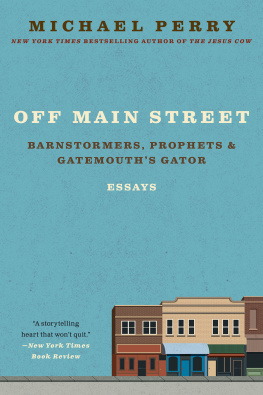





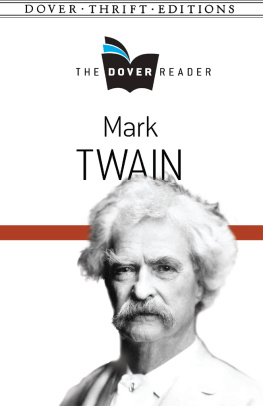

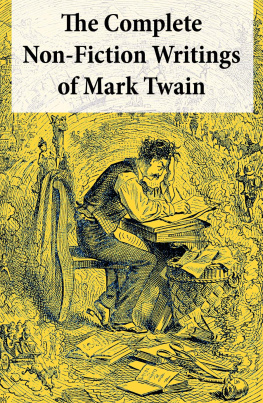
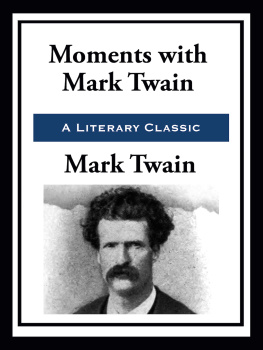
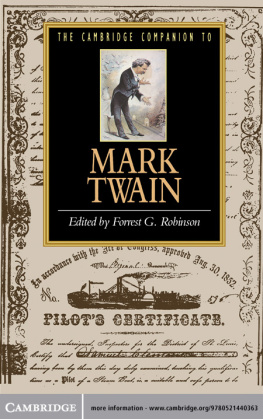
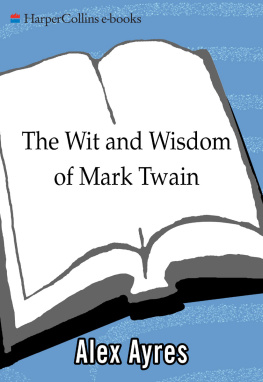
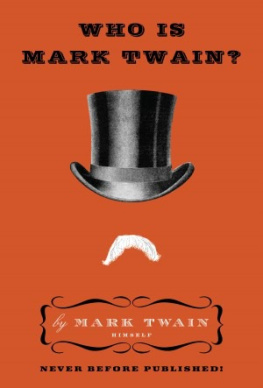
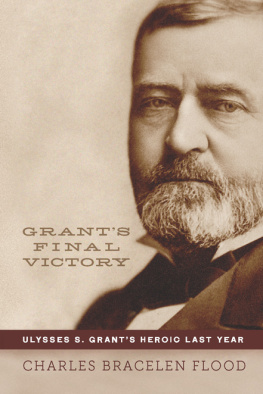
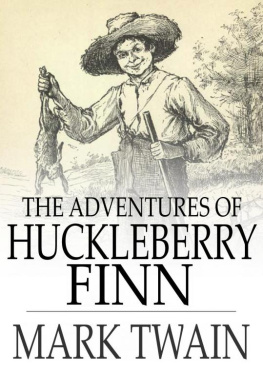

 NEW YORK
NEW YORK